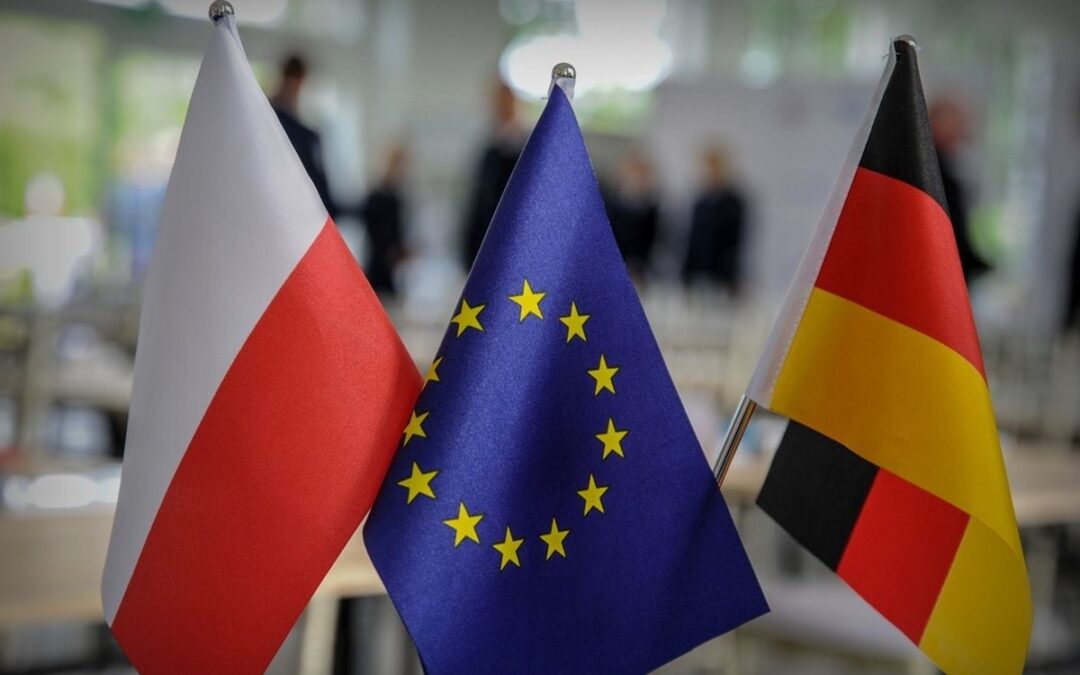Keep our news free from ads and paywalls by making a donation to support our work!

Notes from Poland is run by a small editorial team and is published by an independent, non-profit foundation that is funded through donations from our readers. We cannot do what we do without your support.
Attitudes towards Germans in Poland have significantly worsened over the last three years, the latest version of a long-running study has found.
Less than a third (32%) of Poles now say they like Germans, down from 50% in 2022. It is close to being the lowest figure ever recorded since the study began 25 years ago, with a worse result (30%) found only in 2008.
Meanwhile, a quarter of Poles (25%) now say they dislike Germans, up from 15% in 2022. This year’s finding was the highest level of antipathy since 2000, the year the study began, when it stood at 26%.
By contrast, among Germans, positive sentiment towards Poles, at 42%, has hardly changed since 2022, when it stood at 43%. Meanwhile, negative feelings towards Poles have actually fallen over that period, from 14% to 9%.

The findings come from the Polish-German Barometer, a regular survey exploring topics such as bilateral relations, knowledge about the neighbouring country, and current political developments.
It is carried out in cooperation between the Institute of Public Affairs, the German-Polish Institute, the Konrad Adenauer Foundation and the Foundation for German-Polish Cooperation.
One area of particular tension between Poland and Germany in recent years has been over World War Two history, and in particular the bid launched by Poland’s former government in 2022 to obtain $1.3 trillion in reparations from Germany for its brutal occupation of 1939 to 1945.
Previous opinion polls have suggested that most Poles believe Poland deserves such compensation. But Berlin has maintained its longstanding position that the question was legally settled long ago and nothing is now owed.
The latest Polish-German Barometer shows that most Poles (58%) believe that Germany should do more to compensate Poland for the war, while only a minority of Germans (23%) think so.
Meanwhile, over a third of Poles (34%) agree with the statement that “historical issues remain the main problem in Polish-German relations and without clearing them up it is not possible to talk about the present and future”. Only 16% of Germans felt the same.
By contrast, 70% of Germans said that “Polish-German relations should concentrate more on issues relating to the present and future than on historical issues”. Only 48% of Poles agreed with that.
Germany's ambassador has told a member of the Polish opposition that their demands for Berlin to pay war reparations “create divisions that help only Putin”.
His comments sparked criticism, including from President Nawrocki's chief foreign-policy aide https://t.co/z76wvBPbbH
— Notes from Poland 🇵🇱 (@notesfrompoland) November 16, 2025
A big difference is apparent on this issue between supporters of different political parties in Poland, especially between the right-wing opposition and the more liberal ruling coalition.
Only 8% of voters of the national-conservative Law and Justice (PiS) party, which launched the reparations bid when it was in power, think Germany has done enough to account for the past. For the far-right Confederation (Konfederacja), the figure is also 8%.
Among voters of the centrist Civic Coalition (KO) and The Left (Lewica), which are part of the current ruling coalition, the figures are much higher (though still a minority), at 34% and 38% respectively.
Polish President @NawrockiKn has called on Germany to pay Poland war reparations during talks in Berlin with Chancellor @_FriedrichMerz.
In response, Germany has reiterated that it considers the issue to be legally closed and that no reparations are owed https://t.co/sX07qtCFRL
— Notes from Poland 🇵🇱 (@notesfrompoland) September 16, 2025
Another area of tension between Poland and Germany in recent years has been over European policies on issues such as trade, climate and migration. And here the Polish-German Barometer again reflects those issues.
A decade ago, a large majority of Poles, 68%, believed that “Germany generally contributes to better cooperation in Europe”. However, that number has consistently declined since then, reaching just 35% this year.
Almost as many Poles, 32%, now believe that Germany contributes to “a worsening of disputes and tensions in Europe”.
German attitudes have gone in the opposite direction: in 2018, 53% said that Poland contributes to worsening relations in Europe; that has now fallen to 31%. However, only 33% of Germans say Poland contributes to better cooperation. The largest proportion, 37%, say that they do not know.

Again, in Poland, a political divide is visible here: only 36% of supporters of PiS, which regularly clashed with Berlin during its time in office, think relations with Germany are good. By contrast, a large majority of voters of KO (77%) and The Left (66%) see relations as positive.
The current KO-led government has brought about better relations with Germany than was the case under PiS. However, it has still clashed with Berlin on issues such as migration.
The survey finds that information sources correlate with attitudes. Poles who rely on social media for news about Germany tend to hold more critical views of the country. Those informed by traditional media are generally friendlier toward Germany.
Personal experience also counts: visiting the neighbouring country correlates with more positive attitudes – on both sides of the border.
The co-leader of the far-right @AfD, Germany's largest opposition party, has suggested that Poland is as much of a threat to his country as Russia is https://t.co/2rhOuDhOtd
— Notes from Poland 🇵🇱 (@notesfrompoland) November 12, 2025

Notes from Poland is run by a small editorial team and published by an independent, non-profit foundation that is funded through donations from our readers. We cannot do what we do without your support.
Main image credit: Policja Lubuska (under CC BY-NC-ND 3.0 PL)




















